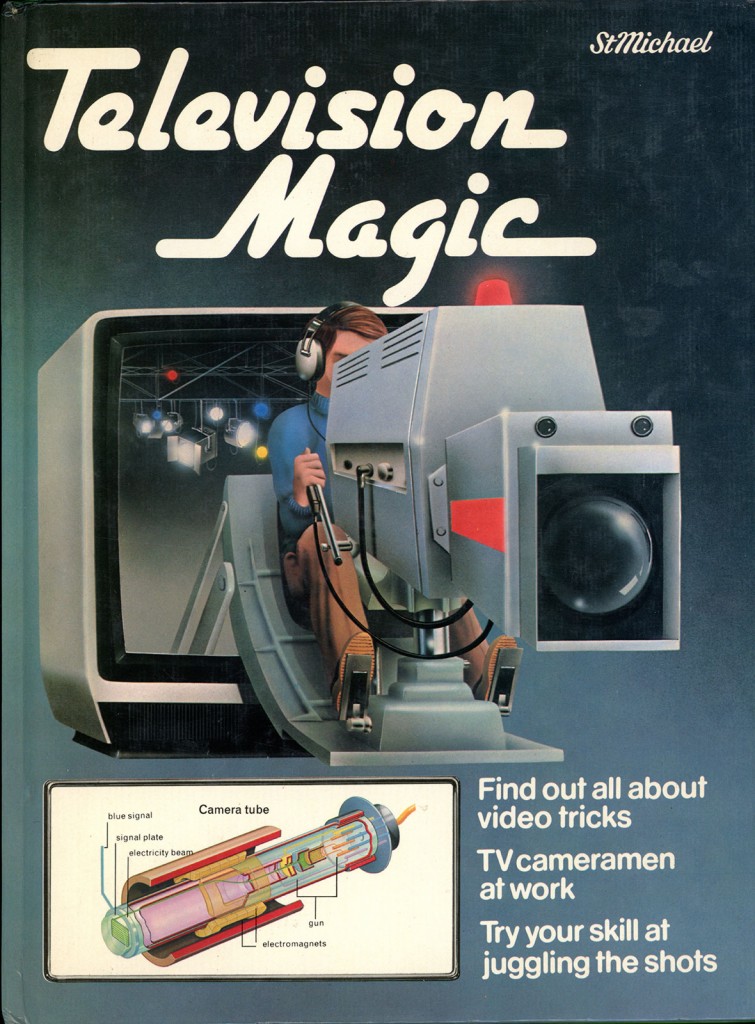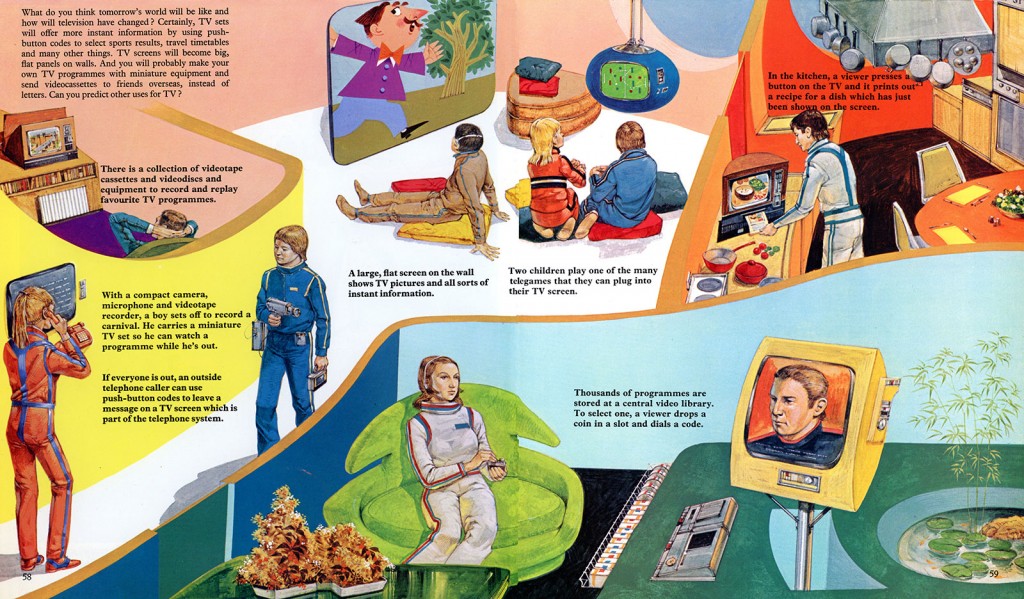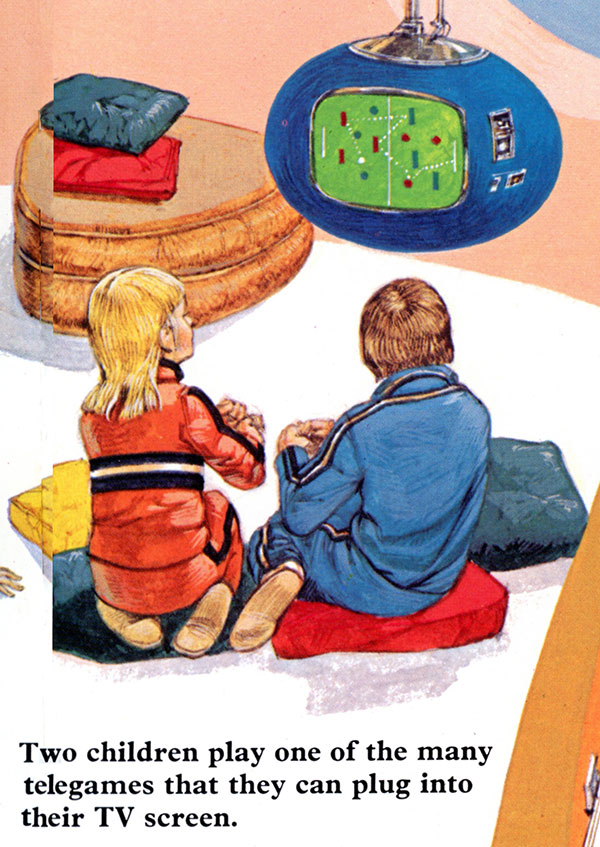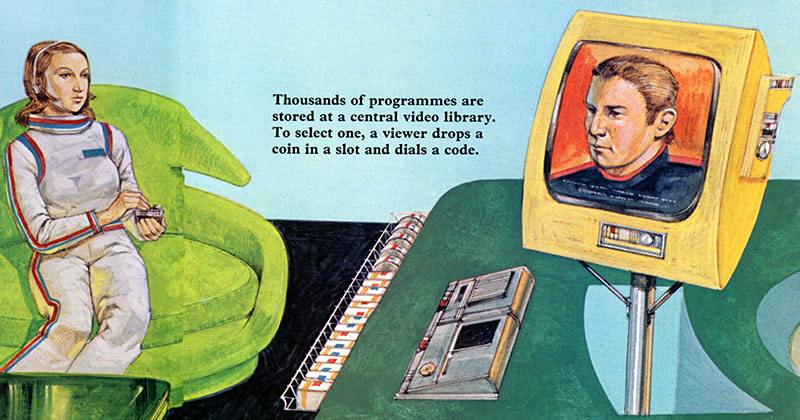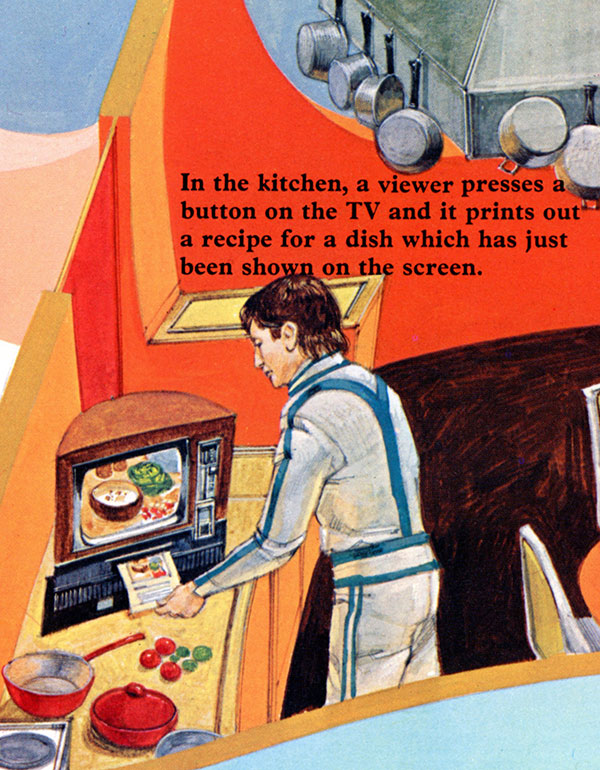The Future of Television (from 1978)
written by smashing
Back in the 1970’s, when parents were wearing flares, and kids like me were somehow allowed to wander the streets of Soho by themselves, a book came out called Television Magic, which literally changed my life.
The picture of a TV cameraman on the cover, in a kind of Star Wars Millennium Falcon chair (Star Wars had just come out…) excited me. The idea of flying high above a TV studio operating this cool contraption was thrilling, and I embraced cameras, begging my parents to get a Super 8, and getting on mailing lists for every TV and camera manufacturer I could find. Later I would become a TV cameraman, and these days I’m making insane VR cameras.
I recently found The Book, and flicking through it I came across this page, graphically illustrating what the writers thought the future of television might look like, nearly 40 years ago…
You can click the image for a bigger version, and it’s fascinating to look back and see what came true about the future of TV.
1. The Future of Television: Video Collections
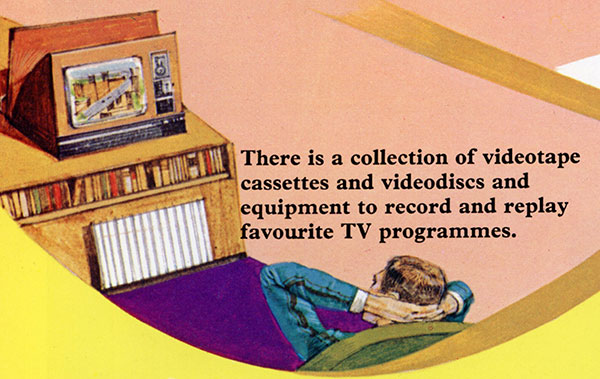
The idea of a home collection of video came true quickly. By the early 80’s people had VHS, Laser Discs, and Betamax VCR’s in the home. Our family got our first VCR in 1980 (a rental), a VHS from JVC with clunky mechanical keys. My father, an actor, used it to record all his shows.
Verdict: TRUE
2. The Future of Television: Camcorders
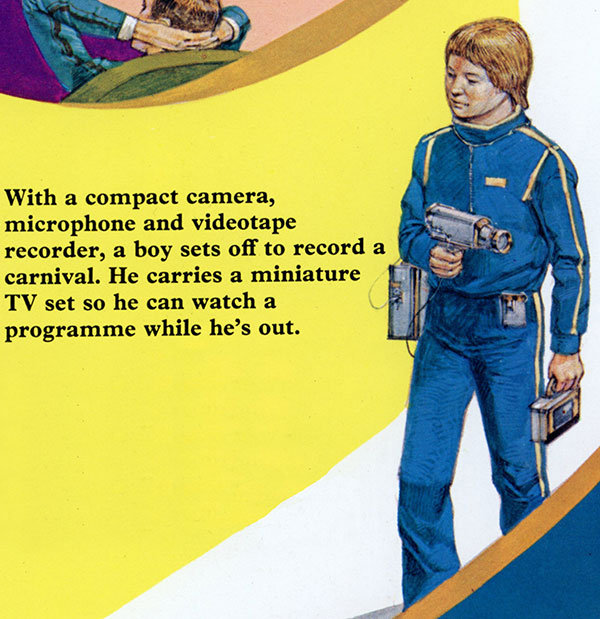
Well it wasn’t quite heading out to film a carnival exactly, and nor did I have an outfit like this, but I had a camera very like this in 1982, and the Sinclair pocket television came out in 1983.
Verdict: TRUE
3. The Future of Television: Text Messaging
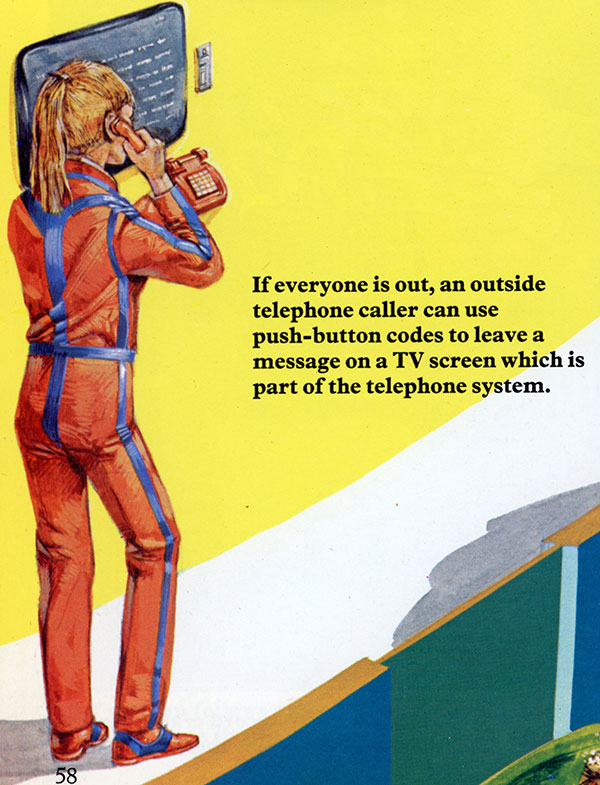
Bit of a confusing one this one… Basically if someone calls your home, and you’re out, the book suggests you can leave a message by tapping out a message on the phone, and it appears on a screen. I’m going to go out on a limb and say this is text messaging.
Verdict: TRUE
4. The Future of Television: Big Screen TV’s
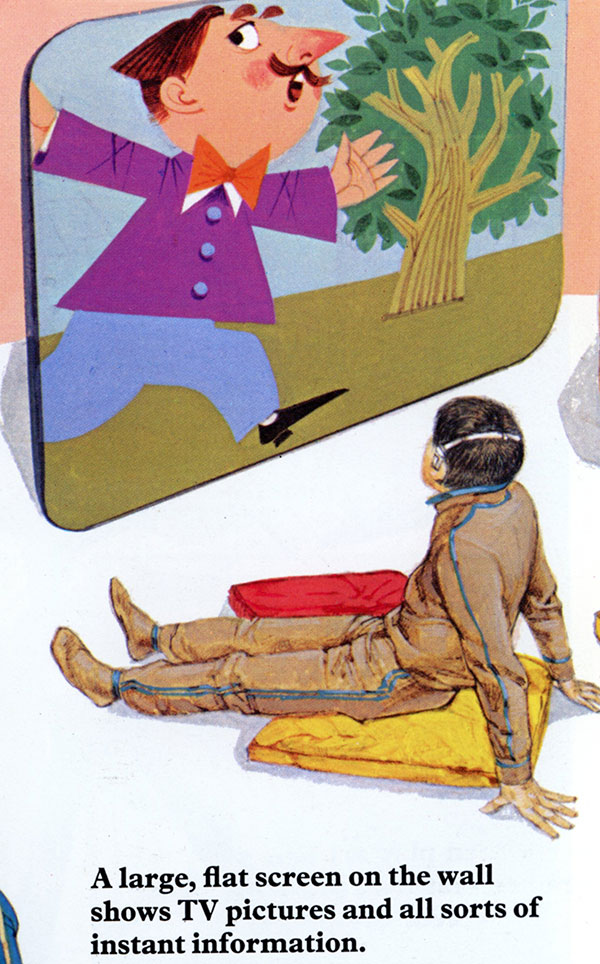
Flat screen wall TV’s were the holy grail of home entertainment in the late 70’s. Within a few years, projection based screens appeared, before obviously the revolution of LCD/Plasma/OLED. A typical early projection TV looked like this, incidentally.
Verdict: TRUE
5. The Future of Television: Video Games
Needless to say I loved this prediction as a kid. The rounded TV suspended from the ceiling, the throw cushions, football in a Pong format, what’s not to love? In fact, in 1978, there were already videogame systems that plugged into the TV, including the Atari 2600 which had just come out. So a bit of a cheat here by the authors, but the vision of the TV was dead cool.
Verdict: TRUE (other than the way cool ceiling TV)
5. The Future of Television: TV on Demand
Can we say Netflix? Fortunately we don’t have to drop a coin in a slot, or dial a code to binge-watch a TV series these days, but the idea of ‘thousands of programmes stored at a central video library’ was quite prescient for 1978, and wouldn’t appear mainstream globally for 30 years.
Verdict: TRUE
6. The Future of Television: Crazy Printing TV’s!
It’s funny how something sticks in your mind for years… I’ve never forgotten this prediction for some reason, and have thought about it many times. Basically it didn’t come true, but it kinda did? Obviously it’s trivial these days to pull up a recipe online and print it out. More likely though you’ll be looking at the recipe on your iPad, rather than changing the ink cartridges in your TV.
Thankfully.
Verdict: SORT OF TRUE
Summary
So pretty amazing really… everything in the prediction essentially came true, and a kid’s book put out by a supermarket in England (Marks & Spencer) managed to nail the future of television pretty accurately – all things considered. I’d love to see the equivalent image now predicting the next 37 years, but they just don’t make artwork like that anymore.
